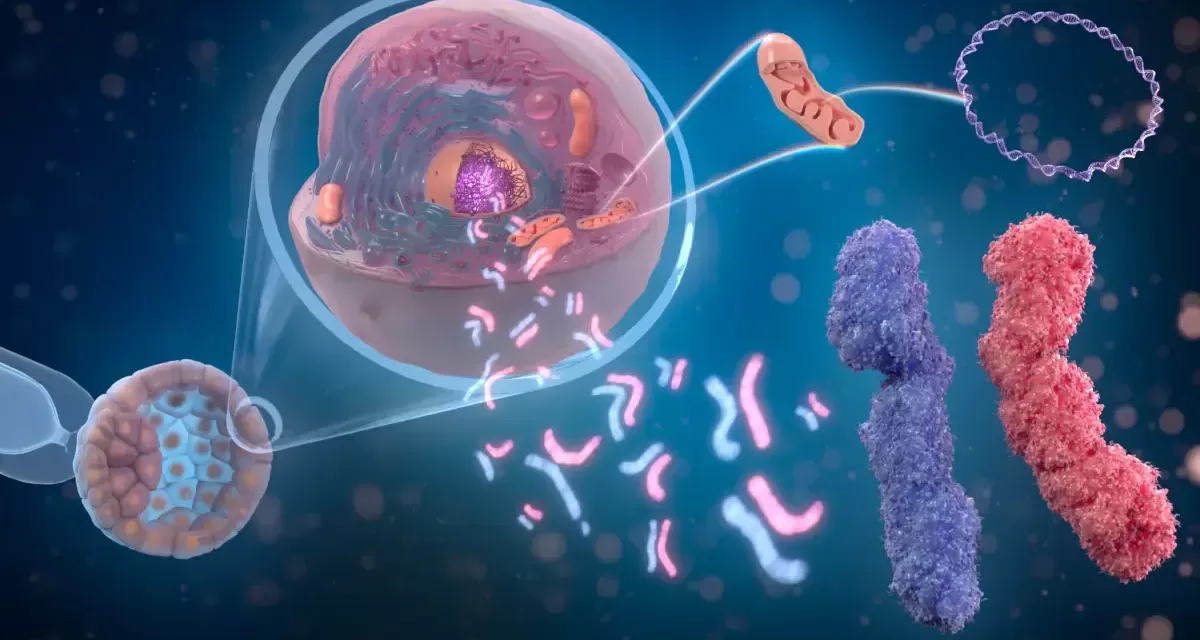A groundbreaking genomic test developed at the University of California, San Francisco (UCSF) is transforming the way doctors diagnose infections, with the ability to identify nearly any pathogen—whether viral, bacterial, fungal, or parasitic. After a decade of successful use, the test, which uses metagenomic next-generation sequencing (mNGS), is showing promise in improving the diagnosis of neurological infections and enhancing rapid detection of new pandemic threats.
Metagenomic next-generation sequencing allows for a comprehensive analysis of all genetic material present in a sample, detecting a wide range of pathogens in a single test. Unlike traditional methods that target one pathogen at a time, mNGS analyzes both RNA and DNA from various sources in a sample, making it faster and more accurate.
“Our technology is deceptively simple,” said Dr. Charles Chiu, professor of laboratory medicine and infectious diseases at UCSF. “By replacing multiple tests with a single test, we can take the lengthy guesswork out of diagnosing and treating infections.”
A Game-Changer for Neurological Infections
The test was initially designed to diagnose infections in cerebrospinal fluid (CSF), the liquid surrounding the brain and spinal cord. Neurological infections, such as meningitis and encephalitis, are notoriously difficult to diagnose, particularly when caused by rare or unknown pathogens. The mNGS test has been instrumental in identifying these infections, significantly improving patient care and outcomes.
Since its inception, the mNGS test has been used to analyze thousands of CSF samples, with a notable success rate. In a study published on November 12 in Nature Medicine, researchers demonstrated that the test correctly identified pathogens in 86% of cases.
“The mNGS test performs better than any other diagnostic method for neurological infections,” said Dr. Chiu. “It has become a critical tool for physicians working with patients who have complex infectious diseases.”
One early success story involved a critically ill child in Wisconsin whose doctors had struggled to identify the cause of his illness. After traditional tests failed, UCSF’s mNGS test identified the pathogen Leptospira in just 48 hours, leading to a life-saving diagnosis and treatment.
Expanding Applications and Preparing for Pandemics
Building on its success with CSF, UCSF researchers have expanded the use of mNGS to detect pathogens in respiratory fluid, an important step for preparing for future viral pandemics. This adaptation could enable early detection of respiratory viruses like SARS-CoV-2, influenza, and RSV, even when present in low concentrations. The test’s ability to detect novel strains of viruses makes it a potential early-warning system for emerging health threats.
Automating the test has dramatically reduced processing times, with results now available within 12 to 24 hours—faster than traditional methods, which can take several days. This rapid turnaround is critical in responding to outbreaks of new viruses that might cause future pandemics.
In a related study published the same day in Nature Communications, UCSF researchers demonstrated that their automated mNGS test could identify a range of viral respiratory pathogens within a single day, helping to mitigate the spread of infections. The test also showed promise in detecting new, divergent viruses that could evolve into pandemic strains, such as future mutations of SARS-CoV-2.
Breaking Barriers in Diagnostics
The mNGS test has already garnered attention for its potential to revolutionize the field of diagnostics. In recognition of its innovative nature, both the CSF and respiratory versions of the test have received breakthrough device designation from the U.S. Food and Drug Administration (FDA). The test is now available through Delve Bio, a company co-founded by Chiu and his colleagues to expand the technology’s availability.
“Thanks to mNGS, doctors can quickly diagnose infections like meningitis and encephalitis, leading to better treatment decisions and potentially lower healthcare costs,” said Dr. Steve Miller, Chief Medical Officer of Delve Bio.
With the continued success of these tests, the UCSF team is poised to offer a powerful new tool for clinicians facing the complex challenge of diagnosing infectious diseases, both common and rare.
Funding and Disclosures
The research was supported in part by the U.S. Department of Health and Human Services, CDC grants, Abbott Laboratories, and the Chan Zuckerberg Biohub San Francisco. Dr. Chiu and other researchers have financial ties to Delve Bio, a company that is the exclusive provider of the UCSF mNGS test.
As mNGS continues to evolve, it promises to be a key resource in the global effort to diagnose and treat infectious diseases faster and more accurately, marking a significant leap forward in medical diagnostics.












